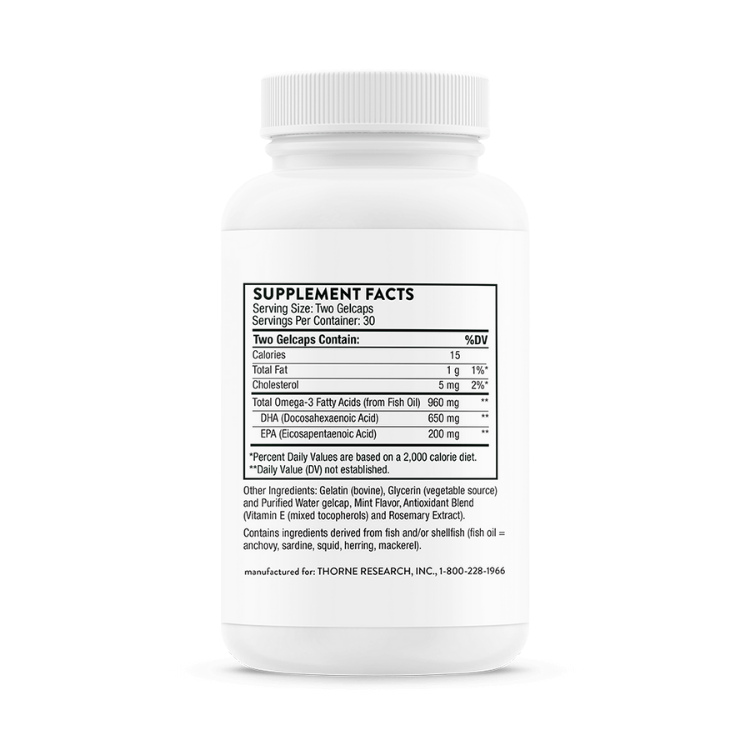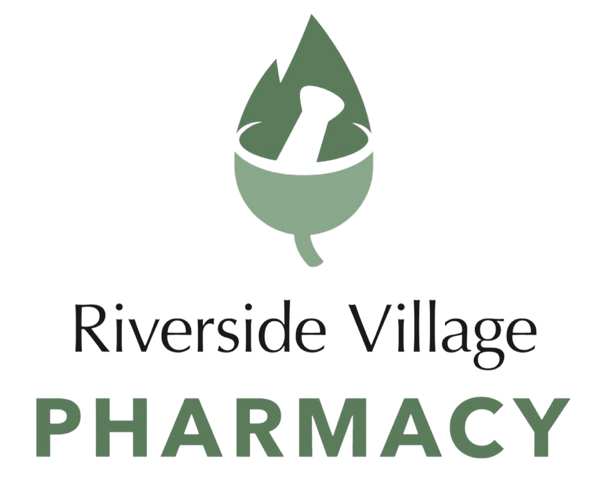Thorne
Prenatal DHA
Prenatal DHA
Couldn't load pickup availability
DHA is an omega-3 fatty acid that is essential for the development of a healthy brain, as well as nerves and eyes.* DHA is especially important for healthy fetal and infant development, accumulating in a baby’s developing brain primarily during the third trimester of pregnancy through the first two years of life.* DHA supports a healthy pregnancy as well.* Although the body can make some DHA, its conversion rate is low, so most DHA needs to be consumed in the diet. The primary dietary sources of DHA – fatty, cold-water fish – aren’t heavily consumed in a western diet, so an omega-3 nutritional supplement can help a mother reach an optimal DHA level.
Benefits of Thorne’s Prenatal DHA:
- Provides nutritional support for a healthy pregnancy*
- Supports memory and mood – before, during, and after pregnancy*
- Promotes normal fetal brain and nervous system development*
- Supports metabolism by helping to maintain a healthy insulin response*
- Promotes DHA levels in breast milk to support baby’s growth and development*
- Supports immune function*
- Helps maintain a healthy inflammatory response*
- Promotes healthy heart function*
Features of Thorne’s Prenatal DHA:
- Provides 650 mg of DHA and 200 mg of EPA per serving
- Rosemary, mint, and mixed tocopherols help reduce fish burps and are gentle on the stomach for mothers who experience pregnancy-related nausea*
- The easy-to-take gelcaps are smaller than most omega-3 supplements
- Tested for more than 250 environmental contaminants, including heavy metals, pesticides, dioxins, and PCBs
DHA by the numbers:
- Approximately 60 percent of a healthy brain is comprised of fat.
- DHA accounts for more than 90 percent of the fatty acids in the brain.
- DHA accounts for more than 90 percent of the fatty acids in the retina.
- Two lobes of the brain – frontal and prefrontal – rely heavily on DHA and are responsible for the ability to learn, problem solve, focus attention, and maintaining a positive mood.*
- Average daily U.S. adult intake of DHA and EPA is only 90 mg; and only 40 mg in children and teenagers.
- Most researchers recommend a minimum of 500 mg DHA + EPA daily.








